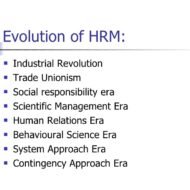Posted by Managementguru in How To, Human Resource, Interview Questions, Organisational behaviour, Stress Management
on Jun 21st, 2014 | 0 comments

A job interview can be viewed as a mutual “exchange of information” because it provides the candidate with an opportunity to both gain information about the department and position, and to discuss his/her own skills, and career goals in relation to the job. Interviewing helps managers determine three things before they make a hiring decision. 1. Can you do the job? 2. Are you motivated to do the job? 3. Are you a good fit in the organization? Acing yourself is an important part of the interview process. The time you spend gearing up before the interview will be time well spent in your job search process. The following are some tip-offs on what you can do to prepare yourself before, during, and after a job interview. Before the Interview Assess the Job Specification and Position Description Review your résumé and be prepared to discuss your appropriate skills. Decide who your references are. A current or past manager, coworker, teacher/professor or associate may come in handy to vouch for your skills/accomplishments. Be ready with extra copies of your résumé Dress for Success -Appearance should display maturity and self-confidence. Be neat, clean, and dress in good taste. Find out where the interview will be, obtain clear directions, and confirm the time. Plan to arrive 10- 15 minutes early. During the Interview Relax! Think of the interview as a conversation, not a cross-examination Be whole-hearted, self-assured, polite, and open. Listen to the questions carefully and give clear, crisp, and precise answers. Convey interest in the organization and knowledge of the position. Ask relevant questions about the job or department. Present a list of your references and any letters of recommendation or reference that you may have to offer. End the interview with a firm handshake and thank the interview panel for their time and consideration. After the Interview Send a crisp thank-you letter within 24 to 48 hours of the interview. Reiterate your interest in the position; mention the key skills you know that strengthen your place in the organization, and your contact information. If you are not chosen for the job, it is OK to graciously accept your defeat and ask the interviewer which area(s) you could improve on in the future!...

Posted by Managementguru in Human Resource, Labor Management, Organisational behaviour, Principles of Management, Training & Development
on Mar 18th, 2014 | 0 comments

Evolution and Growth of Human Resource Management It is very interesting to trace out the evolution and growth of Human Resource Management. People – The Principal Resource The principal resource of any organization is people and managing people is the most important and challenging aspect of an organization. What we call human resource management today, dates back to 1800 b.c.,which is evident from the inscriptions of Babylonian code of Hammurabi and Kautilya’s Arthasashtra, which explains in detail the importance of selection, incentives, performance evaluation, quality of a manager and wage rates. So,we understand that the concept of managing people has existed even in the previous eras through ancient literature and philosophy. India, China and Greece have been the origin points of human resource management concepts. Evolution of Human Resource Management Industrial Revolution Till, 1930’s, there was no such department called “personnel management” that was considered necessary to cater to the needs and welfare of the labor society. The factory manager was acting as a link between the workers and the management, and most of the time he had to comply with the rules of the management to satisfy them, even if it were against the welfare of the workers. Also proper attention was not given to areas like, worker safety, security and living conditions. Industrial revolution saw mass exodus of workers to urban areas in search of jobs. Need for Employment Department Application of science and technology in production made the rich owners even richer; the poor workers were not paid adequately and their life became miserable. Since the owners lost direct contact with the employees, managers came into the picture to take over control of production and administration. Machines ruled the industry and importance of labor got reduced. This condition existed for sometime until the advent of new and improved management concepts by people like F.W.Taylor who is considered to be the father of scientific management and B.F.Goodrich who was instrumental in forming the “employment department” which can be considered the fore runner of present human resource department. Introduction of Scientific Management Scientific methods were introduced to make the workers perform the job with ease and perfection. It also saved enormous time and reduced the monotony of work. job-designs, job-specification, training and development and human relations were given due importance and the owners slowly started realizing the importance of labor. Through 1940’s to 1970’s behavioral approach was applied to professional management, the major architects being Abraham Maslow, Herzberg and Douglas McGregor. This approach suggested managers to modify their leadership styles to suit the type of followers and motivate the workers. Consequences of World War I and II World War I and II also had profound influence on Human resource development. The concepts of role playing, improved training methods, supervision and group discussions came into the fray. The advent of labor unions also established a clear pathway for the workers to claim their rights, ably supported by the labor laws enacted by various governments. International labor organization was formed in 1919 which created sensation in the worker community all over the world. All said and done, empowerment of workers has been achieved only in developed nations where “job security” is no more a great concern because job opportunities are more. But in unorganized and small sectors, employers continue to exploit workers because “supply” is more than “demand”. The responsibility to develop and empower the employees solely lies on the shoulders of human resource department. It should try to address the problems of workers to the management and amicably settle issues relating to wages, welfare, safety and security. → Objectives and Functions of...




